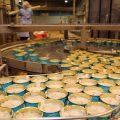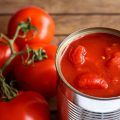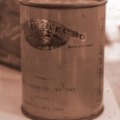Worldwide production costs are exorbitant.
Precisely, the unstoppable global rise in prices of raw materials such as aluminum or steel in recent months as well as the rise in transport costs or Brexit is considerably raising the pressure on the canning food industry, of which Spain is a world power. Precisely, in view of the current situation, the Spanish canning industry has anticipated to weather the strong storm that is coming.
Some Spanish canning companies have already been stocking up on metal containers for several months to maintain and guarantee production in preparation for the important Christmas campaign. However, the rise in raw materials is leading to speculation and “psychosis” that leads companies to plan an “excess storage “for fear that there is no supply, which underpins this rise,” they say from Anfaco. Also the increase in raw materials and the price of electricity complicates the situation of many companies whose rising production costs have not yet been passed on to the consumer.
Anfaco points out that it will be in 2022 when the impact will be felt in detail. The industries estimate that, on a global scale, the forecasts will depend on the actions taken in countries such as the United States or China, together with the response that the European Union may give. There will also be the sharp increase in international shipping costs, the price of which has risen almost tenfold, or the lack of trucks and drivers in countries such as the UK. Before Covid-19, a container from China to Lisbon cost 1,800 euros and now it costs between 10,000 and 15,000 euros.
The general secretary of Anfaco-Cecopesca, Juan Vieites stresses that “it is a time of industrial uncertainty. In an inflationary environment, in certain cases of shortages arising from adjustments between supply-demand and logistical complications” and adds that “the cost of a metal drum has risen by 40% and the cost of electricity by 450% in the last year in Spain. The situation is unsustainable for distribution”.
Vieites predicts imbalances “if steel and aluminum production is cut to adapt to the requirements of CO2 or recycling strategies are modified,” who also notes that “environmental regulations will raise taxes on food “to values that in some cases triple the current”.












